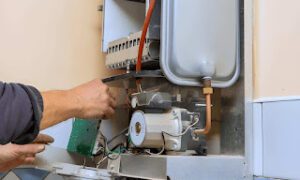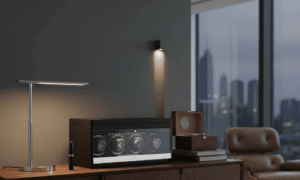If your AC barely made it through last summer, now may be the time to explore a better, more efficient system. Aside from blowing cold air, new cooling systems offer smarter, quieter, and greener solutions for greater long-term savings.
Here’s what you need to know before investing in an AC installation in Wolfworth, TX.
Energy Efficiency Starts with SEER Ratings
SEER (Seasonal Energy Efficiency Ratio) ratings tell you how efficiently an AC unit operates over a cooling season. In a nutshell, Higher numbers mean better energy savings and lower monthly bills. Modern systems boast SEER ratings of 16 and above, compared to older units stuck in the 10–13 range.
Look for Energy Star–certified units with SEER ratings of at least 16 for a good balance between performance and savings.
Smart Features That Make Life Easier
ACs are getting smarter, with many models including Wi-Fi thermostats, app-based controls, and self-monitoring systems. Aside from reducing unnecessary energy use, these features also offer the ultimate convenience.
Smart Systems Benefits:
- Adjust settings from your phone
- Get alerts for filter changes or malfunctions
- Automatically adapt to your daily schedule
Mini-Splits: The Ductless Game Changer
Not every home can accommodate ductwork—that’s where mini-split systems shine. These ductless units cool individual zones instead of the entirety of homes, making them perfect for attics, garages, or room additions. What’s more, they are easy to install and incredibly energy-efficient.
Homeowners looking for a cooling solution will love mini-splits because major remodeling is not needed before having them installed. They also offer independent temperature control for specific rooms. Moreover, their low-profile design is sure to appeal to those who want a seamless indoor experience at home.
Mini-split systems are particularly valuable in hot climates where zone cooling can significantly reduce energy costs. Viking HVAC’s commercial and residential services include expert mini-split installation, perfect for Arizona homes where cooling individual spaces efficiently is crucial during extreme summer heat.
Variable-Speed Tech for Total Comfort
Variable-speed air conditioners don’t just blast cold air at full power—they adjust their speed to keep your home consistently comfortable. This reduces temperature swings and helps with humidity control, especially in humid climates. It also means lower energy use over time.
“Variable-speed systems are ideal for maintaining stable comfort without the stop-start wear and tear of older models,” says a local HVAC technician.
Get the Right Size—Not Just the Biggest One
Buying an oversized system leads to poor humidity control and wasted energy. A properly sized unit should be chosen based on your home’s square footage, insulation, layout, and other factors. Remember this: too small, and it struggles; too big, and it cycles too often.
Steps to take:
- Request a load calculation from your contractor
- Avoid guesswork—size matters more than you think
- Ask about airflow and duct evaluations
Think about Cost and Budget
New AC systems can cost anywhere from $5,000 to $13,000, depending on size, efficiency, and installation complexity. But energy savings, rebates, and fewer repairs often make it worth the upfront investment. Financing options and seasonal deals are often available too.
Ask yourself:
- What’s my monthly energy budget?
- Will a high-efficiency unit pay for itself over time?
- Are there rebates available in my area?
Noise Levels Matter More Than You Think
The last thing you want is a unit that sounds like a freight train on the loose when it kicks on. Modern AC units operate quietly—even when running at full speed. Be on the lookout for systems with sound ratings under 60 decibels for a more peaceful home.
When in doubt, ask a contractor from an AC installation company to compare noise levels between models during your quote.
Invest in Quality Installation
Even the best AC system can underperform if installed incorrectly. Choose a licensed contractor with strong reviews and a solid track record in your area. Poor installation can lead to uneven cooling, higher bills, and more repairs.
Before you hire:
- Ask for references
- Check online ratings
- Make sure they pull permits and perform final inspections
Don’t Forget AC Maintenance and Environmental Impact
Some AC units require less maintenance than others. Filters, coil cleaning, and annual checkups help your AC last longer and perform better. Look for systems that use eco-friendly refrigerants and have lower carbon footprints.
Maintain it like a pro:
- Change filters every 1–3 months
- Schedule annual inspections
- Keep outdoor units clear of debris
Before summer is the best time to seek cooling upgrades. When you choose a system with the right mix of efficiency, smart features, and proper sizing, your next AC unit could be the best investment for your home.



































